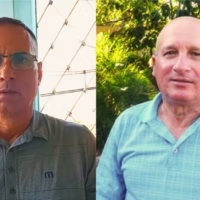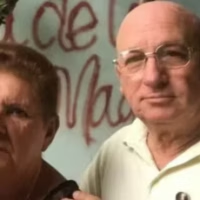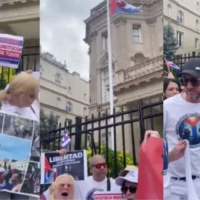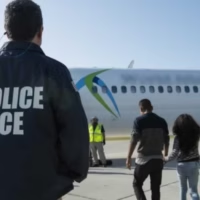U.S. hits Raúl Castro and his children with visa restrictions
The United States sanctioned Raúl Castro and his close family members on Thursday for their involvement in “gross violations of human rights,” Secretary of State Mike Pompeo announced on Twitter.
“The Cuban regime’s disregard for human rights and use of violence to prop up the former Maduro regime are responsible for the ongoing crises in Cuba and Venezuela,” he added.
Raúl Castro ceded the presidency in April 2018 to Miguel Díaz-Canel, but remains at the head of Cuba’s Communist Party, the armed forces and in charge of the most important government decisions.
The State Department also sanctioned Castro’s children: Alejandro Castro Espín, Deborah Castro Espín, Mariela Castro Espín and Nilsa Castro Espín.
The sanction implies that Castro, 88, and his children will not be able to travel to the United States.
The U.S. government has imposed a 60-year-old embargo on the island. The Trump administration has recently imposed more sanctions, including travel restrictions and remittances to Cuba, in an attempt to pressure the Cuban government over its support of Nicolás Maduro in Venezuela. But Thursday’s designation is the first sanction against specific members of the Cuban regime.
The public designation of Castro and his children was made under section 7031 of the State Department’s budget appropriations act for fiscal year 2019, which states that foreign government officials who have been involved in significant cases of corruption or a violation of human rights are not “eligible” to enter the United States.
Raul Castro most recently traveled to the United States in 2015 to participate in the United Nations General Assembly in New York. Mariela Castro, currently a member of the Cuban National Assembly, has traveled to the U.S on several occasions, most recently in 2012 and 2015.
Col. Alejandro Castro Espín was one of the Cuban negotiators of the detente with the Obama administration, but it is not clear if he ever traveled to the U.S. According to a statement from the State Department, as the first secretary of the Communist Party, Castro “oversees a system that arbitrarily detains thousands of Cubans and currently holds more than 100 political prisoners.”
The U.S. government also holds Castro accountable “for Cuba’s actions to prop up the former [Nicolas] Maduro regime in Venezuela through violence, intimidation, and repression.”
The State Department said that Cuban security forces, in concert with Maduro’s military and intelligence officers, have been involved in gross human rights violations and abuses in Venezuela, including torture.
“Castro is complicit in undermining Venezuela’s democracy and triggering the hemisphere’s largest humanitarian crisis, forcing 15 percent of the Venezuelan population to flee the country and precipitating a food shortage and health crisis of unprecedented scale in this region”, the statement says.
The Cuban government had not yet reacted to the announcement late afternoon.
In a vague tweet in which she did not mention the sanctions, Mariela Castro wrote that “Whoever says that everything is lost has not lived the intense and beautiful experience of solidarity, friendship and love for #Cuba in its deepest meaning.
Human rights activists, exile organizations and Cuban American Republicans praised the administration for Thursday’s sanctions.
“We appreciate the actions of the U.S. recognizing the serious crisis suffered by the Cuban people and sanctioning the repressors,” Cuban activist Rosa María Payá said on Twitter. “We hope that the democracies of the Americas will unite against impunity and side with the Cuban people.”
In a statement welcoming the decision, Florida Sen. Marco Rubio said that “Raúl Castro’s involvement in grotesque human rights violations and his complicity with terrorist organizations including the ELN, the FARC, and his link to the Maduro regime evidence the threat he poses to the United States.”
The announcement was made during the week in which the U.N. General Assembly is meeting at the UN. In his speech on Tuesday, President Donald Trump called Maduro, a “Cuban puppet.”
This week more sanctions were announced against companies and ships transporting oil from Venezuela to Cuba. The State Department also organized an event on Thursday to call attention to the violations and “forced labor” to which doctors are subjected in the official missions of the Cuban government in several countries.
Last Friday, the U.S. also expelled two Cuban diplomats on allegations they were conducting intelligence operations.
Follow Nora Gámez Torres on Twitter: @ngameztorres




More Stories
Vicente Feliú: “un revolucionario provocado puede ser muy peligroso”
Camila Acosta, de la estación policial al arresto domiciliario
Régimen multa a un vendedor ambulante con discapacidad por tomar un descanso